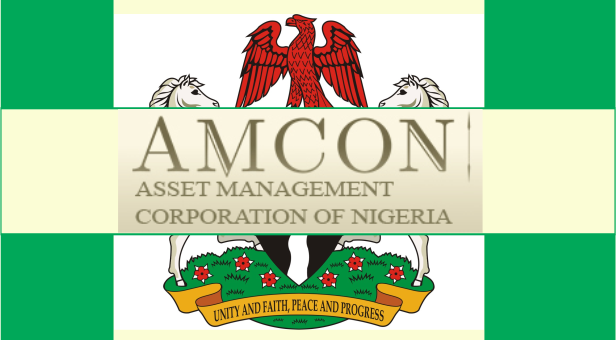As part of its aggressive debt recovery drive, the Asset Management Corporation of Nigeria (AMCON) has engaged the services of asset tracing experts to help recover assets from its debtors that have investments outside the country.
Managing Director/Chief Executive Officer, AMCON, Mr. Ahmed Kuru, who said this in response to enquiry from THISDAY on how the corporation had been handling cases of debtors that have assets outside the country, said the corporation engaged the services of lawyers outside the country to help it carry out the task of assets tracing.
“You know gradually, the world has become a global village. What you need to do is that once you have a local judgement, you engage a lawyer that will go and file the case over there. That is why in some of our cases, we do assets tracing.
“And because over there, they are familiar with what happens here, once you have a local judgement, we engage a lawyer outside to file it in the court over there and they give us access to what we need. You see, these people outside, they know what is happening here because they have people that report to them regularly. So, we follow the law, we appoint lawyers and get those assets,” Kuru explained.
The AMCON boss said President Muhammadu Buhari is passionate about the recovery effort in AMCON. This, according to him is because the president doesn’t want the burden of AMCON’s debt to be passed on to ultimately taxpayers in the country.
He added: “The president is very keen that it doesn’t become the taxpayers’ responsibility. That is why the government is giving us all the support they could to ensure that we achieve our objective.
“We thank the judiciary for their support because whatever we do, we have to go to the judiciary because we are a law abiding organisation. Quick dispensation of justice is also very key when it comes to the future value of money. We appreciate the effort we get from the EFCC, Nigeria Police Force, the NNPC, the Central Bank of Nigeria and the Ministry of Finance.”
Speaking on the economy, he faulted the rebasing of the country’s Gross Domestic Product (GDP) that was done by the previous administration, saying if the economy was growing at about seven per cent, “for anything to shake the economy, it must be volcanic eruption.”
Therefore, Kuru argued that “all those were figures they were just throwing all over the place.”
According to the former Enterprise Bank boss, an economy can’t just collapse because there was a change in government.
As a nation, we must address the governance issue, he said, adding that if we don’t build institutions, if we don’t support governance structure and if we don’t remove impunity in Nigeria, “you can bring anybody from Wall Street, World Bank, London Stock Exchange, etc, and they would fail because there is no institution to support what they want to do.”
“And I think we must all support government to help in building institutions because no matter the economic permutation, if you don’t have institution to execute and support those policies, you will still have to go back and be talking about same thing. So, we have to be patriotic and see how we can support government. So, we need to re-orientate ourselves and see how we can help each other to grow the economy,” he said.
According to him, Nigerians have not considered what would have happened after the 2008/2009 financial crisis if the intervention of AMCON did not take place.
He said by the intervention by AMCON, the government was able to protect financial assets of almost N9.1trillion, saying that if they had allowed the crisis to affect the financial institutions, depositors would have lost money in excess of N4trillion.
“This is aside the unemployment that would have happened, the social unrest and a lot of other things. So, whatever you may lose on the financial side, obviously there are lots of gains on the social side. Primarily, AMCON was set up to provide liquidity to the financial sector, to provide financial stability and also support some of the businesses that are in the key sectors of oil and gas, power and agriculture.
“From our own perspective, I think that objective has been achieved because we were able to come out of that financial crisis due to the intervention. For us, we consider that as the first phase of the intervention and the first phase of the life of AMCON,” he said.


 Forex4 weeks ago
Forex4 weeks ago
 Naira4 weeks ago
Naira4 weeks ago
 Billionaire Watch4 weeks ago
Billionaire Watch4 weeks ago



 Naira4 weeks ago
Naira4 weeks ago






 Naira3 weeks ago
Naira3 weeks ago


 Naira3 weeks ago
Naira3 weeks ago






 Naira2 weeks ago
Naira2 weeks ago
 Economy4 weeks ago
Economy4 weeks ago























